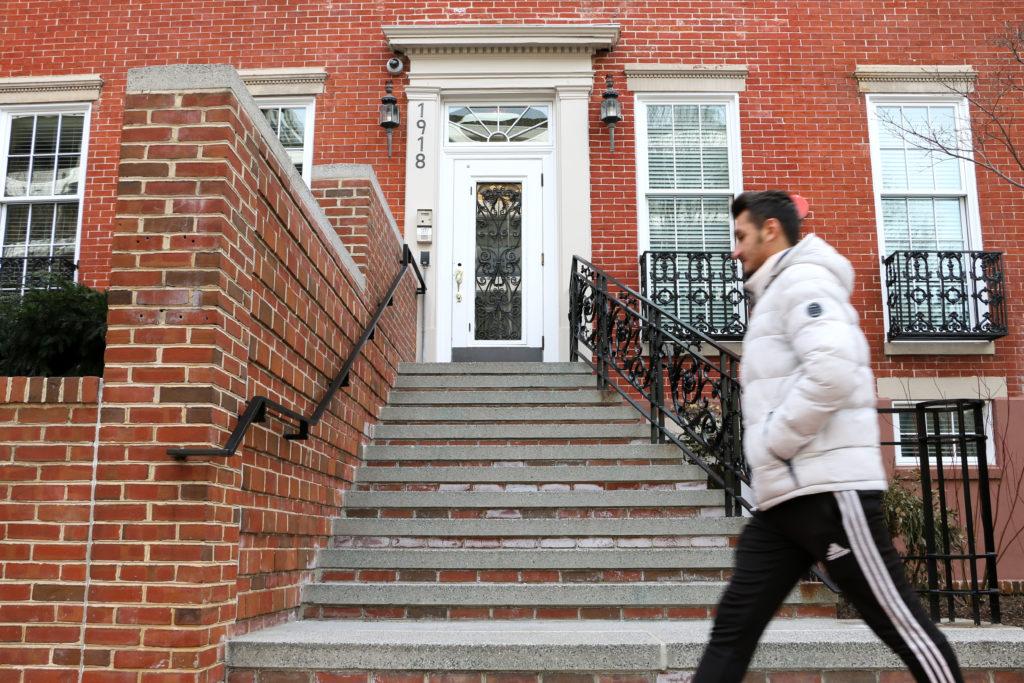As the Department of Education investigates the University’s role in a case of alleged age discrimination, officials say they are “confident” that they did not act inappropriately.
The Office for Civil Rights launched an investigation into GW for possible age discrimination on Jan. 17 and the inquiry was made public for the first time earlier this month. University spokeswoman Maralee Csellar said the complaint that launched the probe was filed by a former student alleging that the University retaliated against them for protesting age discrimination.
Csellar said the University was notified of the investigation on the day it opened. OCR is investigating the complaint under the Age Discrimination Act of 1975, which prohibits discrimination on the basis of age at all institutions that receive federal assistance.
“OCR is obligated to investigate individual complaints within OCR’s jurisdiction, and of course, a complaint represents only the complainant’s perspective,” Csellar said in an email. “The University is confident that it acted appropriately and intends to cooperate with OCR’s review.”
Csellar declined to specify what the complaint alleged. She declined to say whether the University intends to institute any policy change in response to the complaint.
The complaint that launched the investigation was not immediately available online. The Hatchet filed a request for the document through the Freedom of Information Act, which has not yet been returned.
GW is one of 107 institutions currently under investigation by the OCR for possible age discrimination. The University is one of 20 schools with an open inquiry into a complaint alleging retaliation, according to the office’s website.
The University of Michigan is currently facing the highest number of OCR investigations for age discrimination with four separate complaints. GW is the only one of its 12 peer institutions currently under federal investigation for alleged age discrimination.
GW has faced two other federal investigations over the past two years. The Department of Education opened an investigation in April 2017 for alleged discrimination against people with disabilities. The department also launched an investigation in 2017 into the University for allegedly mishandling a student’s sexual violence case. Those investigations ended in March and July, respectively, with resolution agreements dictating steps the University must take to avoid similar incidents in the future.
Complaints to the OCR need to be filed within 180 days of the incident, according to the office’s website. Investigations typically begin with OCR officials requesting documents and reports from the University, experts said.
The current federal investigation is not the first time GW has come under fire for age-based discrimination. An electrician employed by the University sued GW in 2016 for job discrimination and alleged that the University discriminated against him because of his disability and age by cutting his hours.
A former GW Police Department officer sued the University in 2014 for age and racial discrimination, requesting $1 million for lost pay and emotional distress. An employee alleged race and age discrimination and sued the University in 2013, asking for a job promotion and compensation.
But complaints filed through the OCR on the basis of age discrimination are filed under the purview of the Age Discrimination Act of 1975, which does not cover employment discrimination.
Experts said the federal investigation could conclude with GW altering policies and instituting staff training to avoid similar conflicts going forward.
Joseph Kaplan, a founding principal at Passman & Kaplan, P.C., a law firm based in D.C., said laws like the Age Discrimination Act were created to account for other forms of discrimination aside from those based on national origin, race and sex.
“It took a separate law to do that because it wasn’t covered in the original Civil Rights Act in 1964, but it operates in basically the same way and says you can’t treat people differently,” Kaplan said.
Dallas Hammer, a principal at the D.C.-based firm Zuckerman Law, said that if the OCR finds that the University retaliated against the former student, officials may face “significant repercussions,” like mandated policy changes or faculty and staff training.
“I always think that it’s smart for an employer to be proactive and have meaningful policies in place that aren’t just there on the books but actually create a culture of tolerance and acceptance,” Hammer said. “My hope is if there is validity to these claims that we would see the University step up and voluntarily make big changes.”





